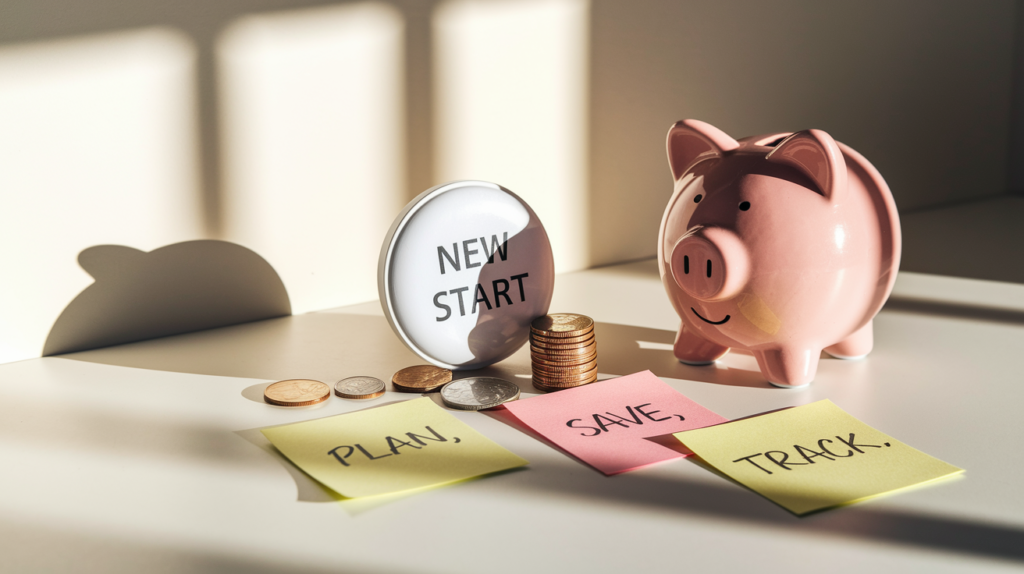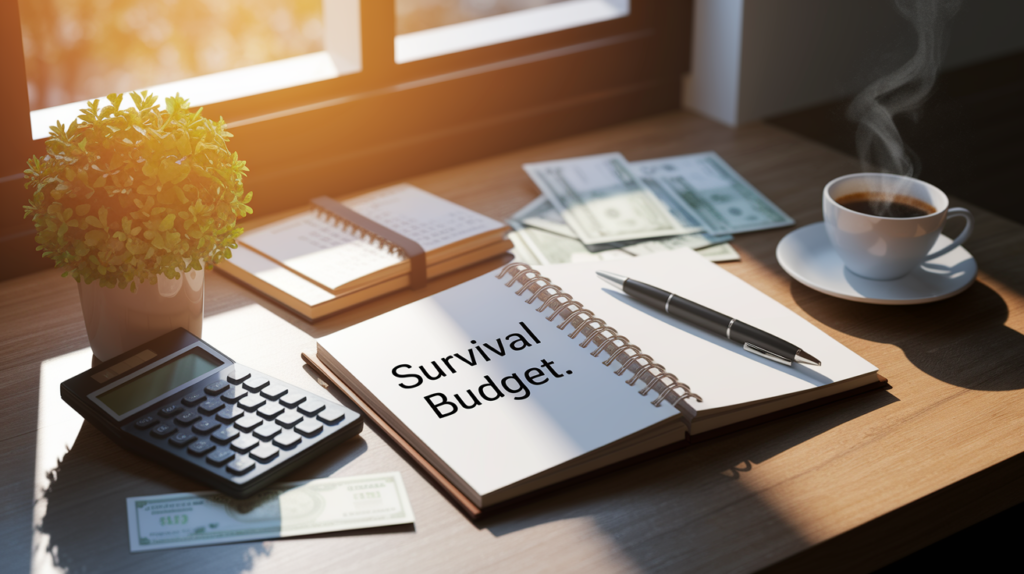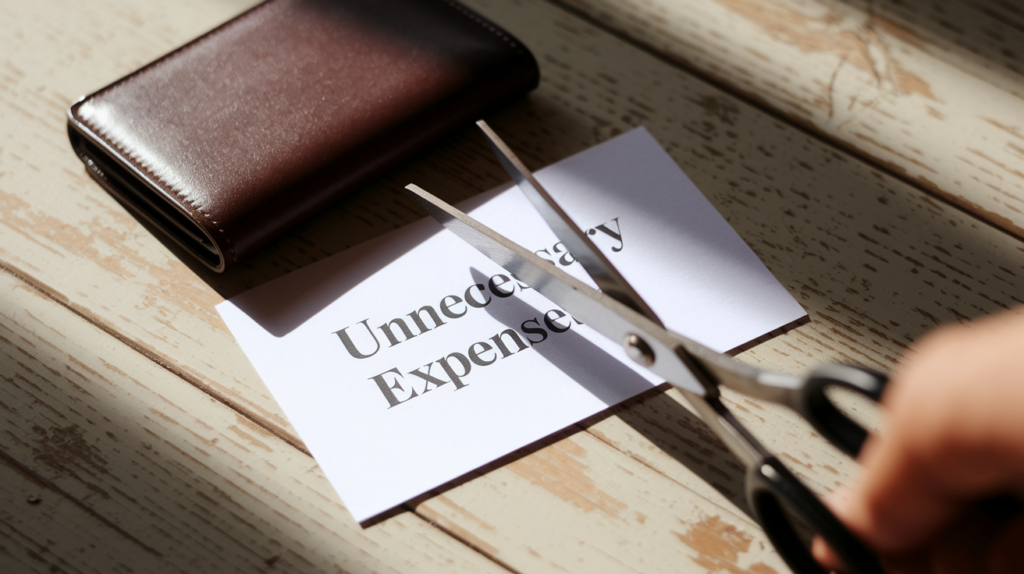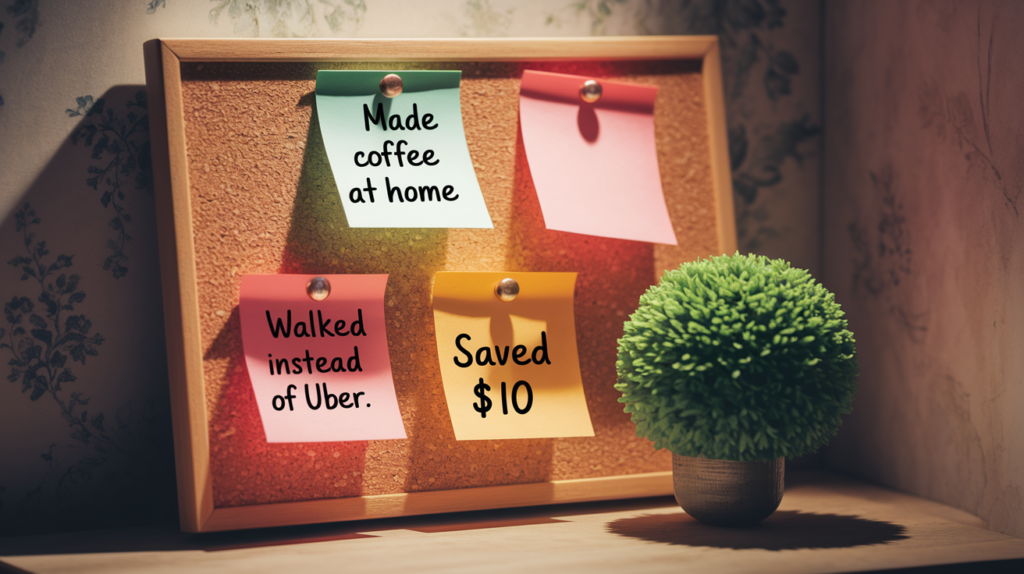
Broke Today Doesn’t Mean Stuck Forever
Let’s talk about something no one likes to admit: feeling broke. It’s not just about money. It’s about that sinking feeling when your card gets declined. Or the tightness in your chest when the bills arrive before your paycheck does. Or that inner voice whispering, “Why can’t I just get it together?”
First, take a deep breath—you’re not alone. Most of us have been there, whether quietly or loudly, temporarily or repeatedly. Being broke doesn’t mean you’re bad with money. It means you’re in a season that requires clarity, honesty, and small, consistent steps.
This isn’t about quick-fix schemes or shame-fueled advice. It’s about getting grounded when your finances feel fragile. It’s about rewriting the story that says you’re not in control. And yes, it’s about learning practical ways to stretch every dollar, reduce the stress, and rebuild—bit by bit.
Step 1: Let Go of the Shame (Seriously)
The first thing you need to do isn’t financial—it’s emotional. Shame keeps you stuck. It makes you avoid your bank balance, ignore bills, and overspend out of frustration. But being broke is a circumstance, not your identity.
Instead of asking, “What’s wrong with me?” ask:
- “What’s my next best step?”
- “What’s within my control today?”
The more honest and gentler you are with yourself, the easier it will be to move forward with clear eyes.

Step 2: Know Your Actual Numbers (Not the Ones in Your Head)
Most people feel broke but haven’t written down their real income and expenses. The truth might surprise you. Maybe you’re overspending on little things that add up. Maybe your fixed costs are just too high for this season. But unless you face the numbers, you’ll stay in the dark.
Helpful Tip:
Grab a notebook, Google Sheet, or budgeting planner and list:
- Your total monthly income
- All fixed expenses (rent, insurance, internet)
- Variable expenses (food, transport, etc.)
- Any subscriptions you forgot existed
This clarity alone can shift your perspective.
Step 3: Build a “Survival Budget”—Just for Now
When money is tight, strip your budget down to the essentials. This isn’t forever—it’s protection for right now.
Your “broke budget” might include:
- Rent or mortgage
- Utilities
- Basic groceries
- Transportation
- Minimum debt payments
Everything else can wait. Pause discretionary spending like takeout, subscriptions, and impulse buys.
Helpful Tip:
Label this as your “Emergency Budget” or “Bounce-Back Plan.” Naming it gives it purpose—it’s not punishment, it’s strategy.

→ Step 4: Cut the Hidden Leaks
Small expenses add up fast:
- That $6 delivery fee
- That $12 forgotten subscription
- The $40 spent on late-night shopping apps
When you’re broke, these are leaks in an already shallow bucket.
Helpful Tip:
Review last month’s bank statement and highlight every “non-essential” expense. Spot patterns, adjust, and move forward.
Step 5: Use Cash or Prepaid Spending Limits
Digital swiping makes overspending easy. Try the cash envelope system or prepaid cards for categories like food, fuel, and fun. When the money’s gone, it’s gone.
Step 6: Bring in Any Extra Income (No Judgment)
You don’t need a perfect side hustle. Start small:
- Sell old clothes
- Tutor online
- Freelance a skill
- Bake for neighbors
Helpful Tip:
Use extra income with intention—pay a bill, buy groceries, or seed a rainy-day fund.
Step 7: Say No for Now So You Can Say Yes Later
It’s okay to decline dinners out, trips, or sales. Try: “It’s not in my plan this month.” This keeps you focused on your why.

Step 8: Don’t Do This Alone
Talk to a friend, mentor, or free financial counselor. Even an online forum can remind you: “You’re not the only one.”
Step 9: Celebrate Progress, Not Perfection
Every small win count:
✓ “Made coffee at home all week.”
✓ “Cancelled an unused subscription.”
✓ “Saved $15 by walking instead of Ubering.”
Wins build momentum—and momentum turns broke seasons into breakthroughs.

Final Thoughts: Broke Is Temporary—But Empowerment Lasts
If you’re broke right now, this doesn’t define you. You’re not lazy, stupid, or failing. You’re in a moment that asks you to slow down, get honest, and grow—one small choice at a time.
Here’s the good news: You don’t need to be perfect with money to improve it. You just need to be willing. Willing to look, plan, learn, and take that next step—again and again.